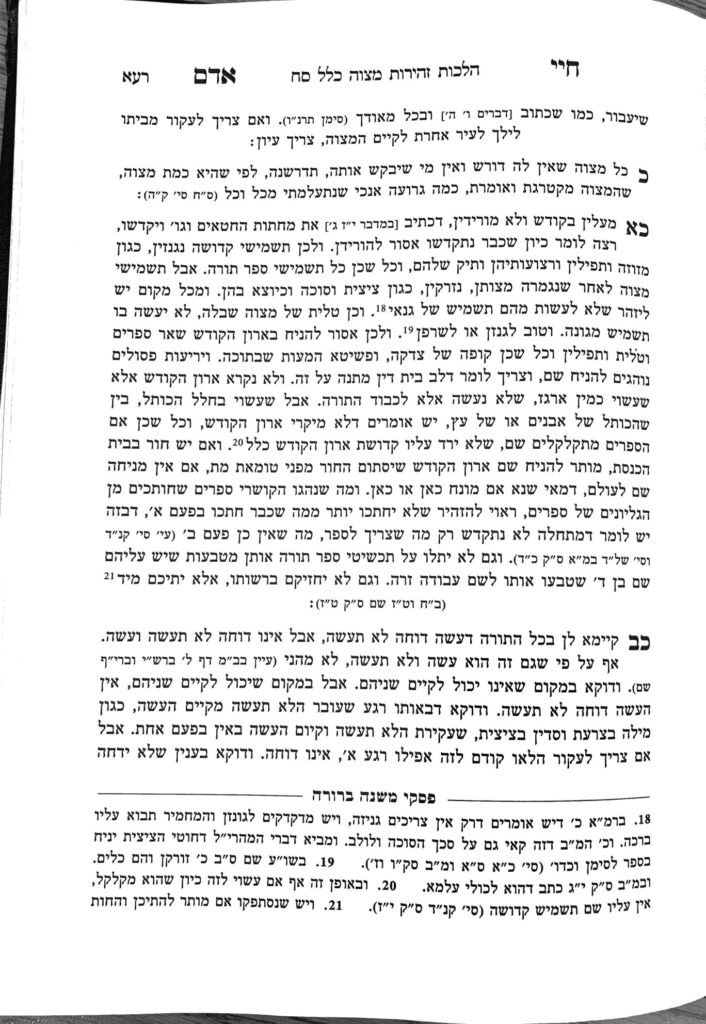We are beginning siman 20. The Chayei Adam writes that one should seek out to perform a mitzvah which people do not generally perform, because the mitzvah feels bereft. The Chayei Adam compares such a mitzvah to a meis mitzvah, a person who is niftar and does not have anyone to bury them. The mitzvah complains in shamayim that the mitzvah feels lowly and ignored, and the mitzvah creates a kitrug (accusation) on Klal Yisroel.
The Sefer Chassidim writes that one should make sure to perform such mitzvos. Performing such mitzvos will avoid the kitrug that this mitzvah is otherwise able to create in shamayim.
The sefer Shomrei Mitzvah discusses the general question of whether a person has a chiyuv to seek out mitzvos which they are not technically chayav to perform. The question is based on a Gemara in Menachos, which states that a person is only chayav in tzitzis if they are wearing a four-cornered garment. If one is not wearing a four-cornered garment, they have no chiyuv. The Gemara then brings a story with Rav Katina, who wore a certain type of garment during the summer, and a different garment during the winter, neither of which had four corners. A malach came to him and reproached him, asking him what will be with the mitzvah of tzitzis. Rav Katina responded, asking whether Hashem would punish a person for not fulfilling a mitzvas asei in which they are not chayav. The malach responded that although Hashem generally does not punish for not fulfilling such a mitzvah, at a moment of anger in shamayim, Hashem will punish those who do not seek out opportunities to fulfill mitzvos, even if they were not necessarily chayav to perform them. If a person appreciates the value of the mitzvah, they will seek out to perform it. By not seeking it out, they are making a statement that they do not appreciate the mitzvah, to the point that Hashem may punish for it.
There is a machlokes in the rishonim regarding the discussion in the Gemara. Some rishonim, including the Mordechai, Tosfos in other places, and the Rosh in Moed Katan, understand that the case was that Rav Katina owned a four cornered garment, and was not wearing it. In such a case, a person will be judged for avoiding the mitzvah because they have it in their hand and are still avoiding it. However, if one does not own such a garment, they are not chayav to go buy one.
Other rishonim, however, including Tosfos there in Menachos, understand that the Gemara’s case was that Rav Katina was being reproached for not going out to buy the garment, and that a person will be judged for not going out to purchase or procure the mitzvah item in question.
A possible application of this discussion is when a person has the opportunity to wash for bread and instead opts to eat mezonos. We will discuss whether this question falls under our discussion in the next shiur, be’ezras Hashem.
Summary
A person should seek to perform mitzvos which are not generally performed, so that the mitzvah is not left bereft.
Even if a person is not chayav to perform a particular mitzvah, it is still improper to avoid performing it, and Hashem may punish a person for avoiding such a mitzvah at a moment of anger in shamayim.



